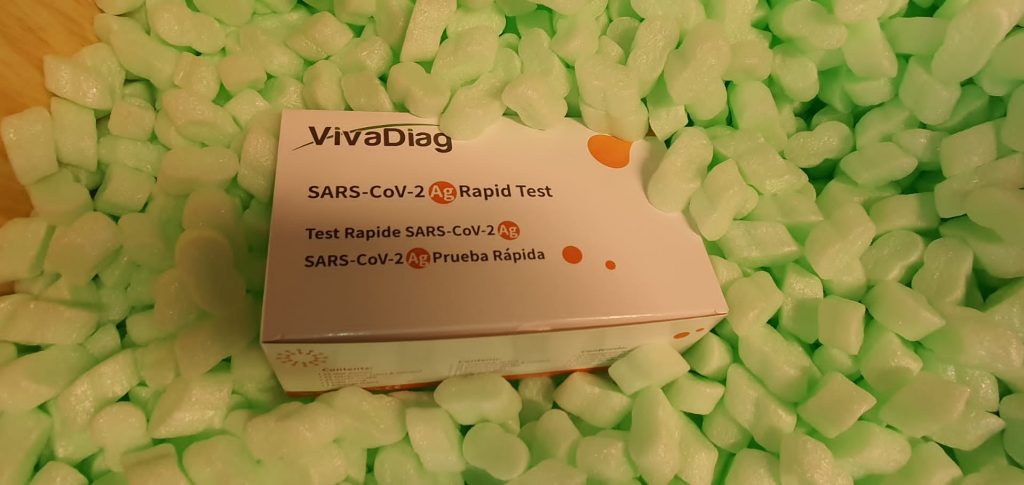Les eaux usées riches en lipides de l’industrie laitière locale (lactosérum de fromage) en Galilée, en Israël, ont été hydrolysées en utilisant deux sources différentes de lipase comme enzymes hydrolytiques: fongique (Candida rogusa lipase-AY) et lipase pancréatique porcine animale (PPL). L’efficacité du prétraitement a été vérifiée par des tests de biodégradabilité comparatifs d’échantillons d’eaux usées brutes et traitées. L’hydrolyse et la digestion anaérobie simultanées dans les mêmes réacteurs ont également été testées. Le prétraitement enzymatique de ces échantillons à une concentration de 0,05 w v-1 a montré une élimination de la matière organique de 90% et une augmentation de la formation de méthane de 140% pour l’enzyme source fongique (c.-à-d. AY)
tandis que pour l’enzyme source animale (c.-à-d. PPL) était de 86 et 130%, respectivement. Le prétraitement enzymatique a conduit à une formation importante de méthane qui n’a été obtenue que pour une concentration de substrat modérée (demande chimique initiale en oxygène de 15 gL-1); Tandis que dans les eaux usées riches en lipides hautement concentrées, cela a conduit à une inhibition du rendement en méthane. La principale constatation était que la combinaison de l’enzyme AY avec le champignon Candida rugosa (c’est-à-dire un mélange d’enzymes) a conduit à une efficacité élevée dans la production de méthane (+ 152%) et l’élimination des matières organiques (plus de 90%).
En résumé, l’utilisation de la lipase hydrolytique fongique mélangée au champignon Candida rugosa est une méthode prometteuse pour améliorer la production de méthane lors de la biodégradation des eaux usées riches en graisses et en graisses. Bacillus subtilis est une souche modèle pour étudier les mécanismes physiologiques et biochimiques des micro-organismes, et est également une bonne cellule châssis pour une application industrielle pour produire des agents biologiques tels que des composés à petites molécules, des produits chimiques en vrac, des enzymes industrielles, des précurseurs de médicaments et des produits de santé. Ces dernières années, des études sur les méthodes et stratégies d’ingénierie métabolique de B. subtilis ont été de plus en plus rapportées
fournissant de bons outils et des références théoriques pour l’utiliser comme cellules châssis pour produire des agents biologiques. Cette revue fournit des informations sur l’optimisation systématique de la cellule châssis de Bacillus subtilis en régulant les facteurs de régulation globaux, en simplifiant et en optimisant le génome, en régulant multi-site et multidimensionnel, en régulation dynamique via des biocapteurs, en ingénierie des protéines membranaires. Pour produire le réactif protéique, la souche est optimisée en optimisant les promoteurs, les peptides signaux, les composants de sécrétion et en construisant le système d’expression sans inducteurs chimiques. En outre, cet examen prospecte également les questions et les directions importantes sur lesquelles il faut se concentrer pour optimiser davantage B. subtilis dans la production industrielle.
Connaissance, perception et intérêt concernant la biotechnologie chez les élèves du secondaire de Calabar, dans l’État de Cross River, au Nigéria
Une enquête a été menée pour étudier les connaissances, la perception et l’intérêt des élèves du secondaire pour la biotechnologie. Au total, 334 questionnaires ont été distribués aux élèves des classes du secondaire 3 de huit écoles secondaires de la métropole de Calabar. Les données ont été collectées et analysées à l’aide de SPSS version 7.5. Les résultats ont révélé que 105 (34,21%) des étudiants avaient une connaissance limitée de la biotechnologie médicale, du génie génétique et des produits génétiquement modifiés. 91 (30,03%) des étudiants ont convenu que la biotechnologie
est l’utilisation d’organismes vivants pour produire des biens et des services tandis que 102 (33,41%) ont admis que la biotechnologie est une nouvelle technologie basée sur la biologie 62 (20,39%) étaient disposés à adopter les applications de biotechnologie. 152 (50,03%) ne sont pas d’accord pour dire que la biotechnologie améliorera les services pour l’humanité; 90 (29,51) n’avaient aucune idée des applications de la biotechnologie; 31 élèves (10,24%) n’étaient pas d’accord avec le fait que le clonage aboutit à des individus parfaitement identiques tandis que les réponses positives les plus élevées; 92 (30,31%) ont été enregistrés pour des questions concernant la fécondation in vitro.
Les étudiants ont également montré un très faible intérêt 76 (25%) à poursuivre des études de biotechnologie à l’université. En général, les connaissances, la perception et l’intérêt des élèves pour la biotechnologie étaient faibles parmi les élèves du secondaire de Calabar. Il est nécessaire d’augmenter immédiatement les connaissances et l’accent mis sur les applications de la biotechnologie parmi les élèves du secondaire pour leur permettre d’apprécier les avantages de la biotechnologie.
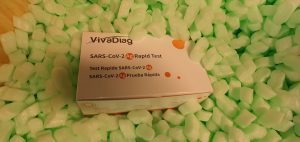
L’ADN sans cellule en tant que biomarqueur de biopsie liquide en évolution pour le diagnostic initial et les soins infirmiers thérapeutiques dans le cancer – Un aspect en évolution de la biotechnologie médicale
L’ADN acellulaire (ADNc) est présent dans de nombreux fluides corporels en plus des initiations généralement issues des cellules sanguines. C’est sans aucun doute l’outil le plus prometteur parmi tous les composants de la biopsie liquide. La biopsie liquide est une méthode spécialisée qui étudie le tissu biologique non solide en révélant des cellules en circulation, de l’ADN sans cellules, etc. qui pénètrent dans les fluides corporels. Étant donné que les cellules cancéreuses se désengagent des tumeurs compactes circulant dans le sang périphérique, l’évaluation du sang des patients cancéreux offre la possibilité de capturer et d’analyser au niveau moléculaire divers constituants dérivés de la tumeur.
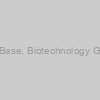 Tris-Base, Biotechnology Grade |
|
42020309-1 |
Glycomatrix |
500 g |
EUR 34.22 |
 Tris-Base, Biotechnology Grade |
|
42020309-2 |
Glycomatrix |
1 kg |
EUR 63.17 |
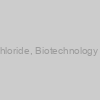 5M Sodium Chloride, Biotechnology Grade, 500ml |
|
PB0570-500ml |
Vivantis |
each |
Ask for price |
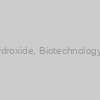 1M Sodium Hydroxide, Biotechnology Grade, 500ml |
|
PB0750-500ml |
Vivantis |
each |
Ask for price |
 3M Sodium Acetate, pH5.2, Biotechnology Grade, 500ml |
|
PB0461-500ml |
Vivantis |
each |
Ask for price |
 Solution, Biotechnology Grade, 500ml) 10% Sodium Dodecyl Sulfate (SDS) Solution, Biotechnology Grade, 500ml |
|
PB0640-500ml |
Vivantis |
each |
Ask for price |
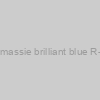 Coomassie brilliant blue R-250 |
|
20-abx082400 |
Abbexa |
-
Ask for price
-
Ask for price
|
|
|
|
 Coomassie brilliant blue R-250 |
|
20-abx082561 |
Abbexa |
-
Ask for price
-
Ask for price
|
|
|
|
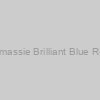 Coomassie Brilliant Blue R-250 |
|
40340012-1 |
Glycomatrix |
10 g |
EUR 20.06 |
 Coomassie Brilliant Blue R-250 |
|
40340012-2 |
Glycomatrix |
25 g |
EUR 38.77 |
 Coomassie Brilliant Blue R-250 |
|
40340012-3 |
Glycomatrix |
50 g |
EUR 72.08 |
 Coomassie Brilliant Blue R-250 |
|
40340012-4 |
Glycomatrix |
100 g |
EUR 109.36 |
 Coomassie brilliant blue R-250 |
|
CB0037 |
Bio Basic |
5g |
EUR 70.44 |
|
|
 Coomassie Brilliant Blue R-250 |
|
CH024 |
ABM |
10 g |
EUR 145.2 |
 Coomassie Brilliant Blue R-250 |
|
CH025 |
ABM |
25 g |
EUR 85 |
|
Description: Commonly used stain for the detection of protein bands following electrophoresis. |
 Coomassie Brilliant Blue R-250 |
|
CH026 |
ABM |
50 g |
EUR 210 |
 Coomassie Brilliant Blue R-250 |
|
MB153-100G |
EWC Diagnostics |
1 unit |
EUR 116.32 |
|
Description: Coomassie Brilliant Blue R-250 |
 Coomassie Brilliant Blue R-250 |
|
MB153-25G |
EWC Diagnostics |
1 unit |
EUR 29.71 |
|
Description: Coomassie Brilliant Blue R-250 |
 Coomassie Brilliant Blue R-250 |
|
MB153-5G |
EWC Diagnostics |
1 unit |
EUR 18.85 |
|
Description: Coomassie Brilliant Blue R-250 |
 Coomassie brilliant blue R-250 |
|
abx082400-100l |
Abbexa |
100 µl |
EUR 125 |
 Coomassie brilliant blue R-250 |
|
abx082400-1ml |
Abbexa |
1 ml |
Ask for price |
 Coomassie brilliant blue R-250 |
|
abx082400-200l |
Abbexa |
200 µl |
EUR 162.5 |
 Coomassie brilliant blue R-250 |
|
abx082561-1ml |
Abbexa |
1 ml |
EUR 125 |
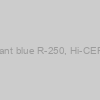 Brilliant blue R-250, Hi-CERT™ |
|
RM344-10G |
EWC Diagnostics |
1 unit |
EUR 15.86 |
|
Description: Brilliant blue R-250, Hi-CERT™ |
 Brilliant blue R-250, Hi-CERT™ |
|
RM344-25G |
EWC Diagnostics |
1 unit |
EUR 34.95 |
|
Description: Brilliant blue R-250, Hi-CERT™ |
 Brilliant Blue G |
|
C5579-100000 |
ApexBio |
100 g |
EUR 66 |
|
|
|
Description: used for protein staining in SDS-PAGE, Blue Native PAGE, and the Bradford Method; selective inhibitor of the P2X purinoceptor channel P2X7 |
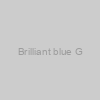 Brilliant blue G |
|
GRM1219-25G |
EWC Diagnostics |
1 unit |
EUR 61.93 |
|
Description: Brilliant blue G |
 Brilliant blue G |
|
GRM1219-5G |
EWC Diagnostics |
1 unit |
EUR 13.76 |
|
Description: Brilliant blue G |
 Brilliant Blue FCF |
|
T7771-10mg |
TargetMol Chemicals |
10mg |
Ask for price |
|
|
|
Description: Brilliant Blue FCF |
 Brilliant Blue FCF |
|
T7771-1g |
TargetMol Chemicals |
1g |
Ask for price |
|
|
|
Description: Brilliant Blue FCF |
 Brilliant Blue FCF |
|
T7771-1mg |
TargetMol Chemicals |
1mg |
Ask for price |
|
|
|
Description: Brilliant Blue FCF |
 Brilliant Blue FCF |
|
T7771-50mg |
TargetMol Chemicals |
50mg |
Ask for price |
|
|
|
Description: Brilliant Blue FCF |
 Brilliant Blue FCF |
|
T7771-5mg |
TargetMol Chemicals |
5mg |
Ask for price |
|
|
|
Description: Brilliant Blue FCF |
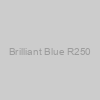 Brilliant Blue R250 |
|
T19838-10mg |
TargetMol Chemicals |
10mg |
Ask for price |
|
|
|
Description: Brilliant Blue R250 |
 Brilliant Blue R250 |
|
T19838-1g |
TargetMol Chemicals |
1g |
Ask for price |
|
|
|
Description: Brilliant Blue R250 |
 Brilliant Blue R250 |
|
T19838-1mg |
TargetMol Chemicals |
1mg |
Ask for price |
|
|
|
Description: Brilliant Blue R250 |
 Brilliant Blue R250 |
|
T19838-50mg |
TargetMol Chemicals |
50mg |
Ask for price |
|
|
|
Description: Brilliant Blue R250 |
 Brilliant Blue R250 |
|
T19838-5mg |
TargetMol Chemicals |
5mg |
Ask for price |
|
|
|
Description: Brilliant Blue R250 |
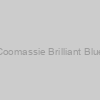 Coomassie Brilliant Blue |
|
18-446 |
Genesee Scientific |
1 L/Unit |
EUR 95.06 |
|
Description: G-250 Protein Stain |
 Coomassie Brilliant Blue |
|
18-447 |
Genesee Scientific |
3.78 Liters (1 gal.)/Unit |
EUR 271.75 |
|
Description: G-250 Protein Stain |
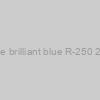 Coomassie brilliant blue R-250 2 xSolution |
|
C462151 |
Bio Basic |
250ml |
EUR 127.86 |
|
|
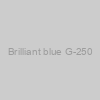 Brilliant blue G-250 |
|
T20731-10mg |
TargetMol Chemicals |
10mg |
Ask for price |
|
|
|
Description: Brilliant blue G-250 |
 Brilliant blue G-250 |
|
T20731-1g |
TargetMol Chemicals |
1g |
Ask for price |
|
|
|
Description: Brilliant blue G-250 |
 Brilliant blue G-250 |
|
T20731-1mg |
TargetMol Chemicals |
1mg |
Ask for price |
|
|
|
Description: Brilliant blue G-250 |
 Brilliant blue G-250 |
|
T20731-50mg |
TargetMol Chemicals |
50mg |
Ask for price |
|
|
|
Description: Brilliant blue G-250 |
 Brilliant blue G-250 |
|
T20731-5mg |
TargetMol Chemicals |
5mg |
Ask for price |
|
|
|
Description: Brilliant blue G-250 |
 Coomassie Brilliant Blue 0.125% |
|
40120761-1 |
Glycomatrix |
1 L |
EUR 77.66 |
 Coomassie Brilliant Blue R-250 C.I. No. 42660_x000D__x000D_ |
|
C25266 |
Pfaltz & Bauer |
25G |
EUR 106.05 |
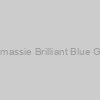 Coomassie Brilliant Blue G250 |
|
abx090654-5g |
Abbexa |
5 g |
EUR 226.8 |
|
|
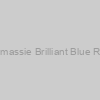 Coomassie Brilliant Blue R250 |
|
abx090655-5g |
Abbexa |
5 g |
EUR 226.8 |
|
|
 Coomassie Brilliant Blue G250 |
|
abx090654-100l |
Abbexa |
100 µl |
EUR 125 |
 Coomassie Brilliant Blue G250 |
|
abx090654-1ml |
Abbexa |
1 ml |
Ask for price |
 Coomassie Brilliant Blue G250 |
|
abx090654-200l |
Abbexa |
200 µl |
Ask for price |
 Coomassie Brilliant Blue R250 |
|
abx090655-100l |
Abbexa |
100 µl |
EUR 125 |
 Coomassie Brilliant Blue R250 |
|
abx090655-1ml |
Abbexa |
1 ml |
Ask for price |
 Coomassie Brilliant Blue R250 |
|
abx090655-200l |
Abbexa |
200 µl |
Ask for price |
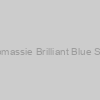 Coomassie Brilliant Blue Stain |
|
ML046-250ML |
EWC Diagnostics |
1 unit |
EUR 15.11 |
|
Description: Coomassie Brilliant Blue Stain |
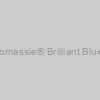 Coomassie® Brilliant Blue G |
|
MB092-25G |
EWC Diagnostics |
1 unit |
EUR 73.87 |
|
Description: Coomassie® Brilliant Blue G |
 Coomassie® Brilliant Blue G |
|
MB092-5G |
EWC Diagnostics |
1 unit |
EUR 15.91 |
|
Description: Coomassie® Brilliant Blue G |
 Coomassie brilliant blue G-250 |
|
20-abx082402 |
Abbexa |
-
Ask for price
-
Ask for price
|
|
|
|
 Coomassie brilliant blue G-250 |
|
20-abx082562 |
Abbexa |
-
Ask for price
-
Ask for price
|
|
|
|
 Coomassie Brilliant Blue G-250 |
|
40340008-1 |
Glycomatrix |
10 g |
EUR 21.12 |
 Coomassie Brilliant Blue G-250 |
|
40340008-2 |
Glycomatrix |
25 g |
EUR 37.64 |
 Coomassie Brilliant Blue G-250 |
|
40340008-3 |
Glycomatrix |
50 g |
EUR 68.46 |
 Coomassie Brilliant Blue G-250 |
|
40340008-4 |
Glycomatrix |
100 g |
EUR 127.66 |
 Coomassie brilliant blue G-250 |
|
CB0038 |
Bio Basic |
25g |
EUR 90.28 |
|
|
 Coomassie brilliant blue G-250 |
|
abx082402-100l |
Abbexa |
100 µl |
EUR 125 |
 Coomassie brilliant blue G-250 |
|
abx082402-1ml |
Abbexa |
1 ml |
Ask for price |
 Coomassie brilliant blue G-250 |
|
abx082402-200l |
Abbexa |
200 µl |
EUR 162.5 |
 Coomassie brilliant blue G-250 |
|
abx082562-100l |
Abbexa |
100 µl |
EUR 125 |
 Coomassie brilliant blue G-250 |
|
abx082562-1ml |
Abbexa |
1 ml |
Ask for price |
 Coomassie brilliant blue G-250 |
|
abx082562-200l |
Abbexa |
200 µl |
EUR 162.5 |
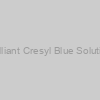 Brilliant Cresyl Blue Solution |
|
S066-100ML |
EWC Diagnostics |
1 unit |
EUR 20.69 |
|
Description: Brilliant Cresyl Blue Solution |
 Brilliant Cresyl Blue 0.5% Alcoholic |
|
RRSP13-B |
Atom Scientific |
100ml |
EUR 14.76 |
|
|
 Brilliant Cresyl Blue 0.5% Alcoholic |
|
RRSP13-C |
Atom Scientific |
250ml |
EUR 19.31 |
|
|
 Brilliant Cresyl Blue 0.5% Alcoholic |
|
RRSP13-D |
Atom Scientific |
500ml |
EUR 34.11 |
|
|
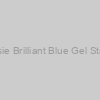 Coomassie Brilliant Blue Gel Staining Kit |
|
abx090653-1Kit |
Abbexa |
1 Kit |
EUR 226.8 |
|
|
 Coomassie Brilliant Blue Gel Staining Kit |
|
abx090653-100l |
Abbexa |
100 µl |
EUR 125 |
 Coomassie Brilliant Blue Gel Staining Kit |
|
abx090653-1ml |
Abbexa |
1 ml |
Ask for price |
 Coomassie Brilliant Blue Gel Staining Kit |
|
abx090653-200l |
Abbexa |
200 µl |
Ask for price |
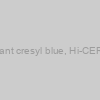 Brilliant cresyl blue, Hi-CERT™ |
|
RM271-25G |
EWC Diagnostics |
1 unit |
EUR 126.32 |
|
Description: Brilliant cresyl blue, Hi-CERT™ |
 Brilliant cresyl blue, Hi-CERT™ |
|
RM271-5G |
EWC Diagnostics |
1 unit |
EUR 28.11 |
|
Description: Brilliant cresyl blue, Hi-CERT™ |
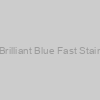 Coomassie Brilliant Blue Fast Staining Solution |
|
abx090652-200ml |
Abbexa |
200 ml |
EUR 243.6 |
|
|
 Coomassie Brilliant Blue Fast Staining Solution |
|
abx090652-100l |
Abbexa |
100 µl |
EUR 137.5 |
 Coomassie Brilliant Blue Fast Staining Solution |
|
abx090652-1ml |
Abbexa |
1 ml |
Ask for price |
 Coomassie Brilliant Blue Fast Staining Solution |
|
abx090652-200l |
Abbexa |
200 µl |
Ask for price |
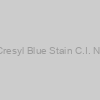 Brilliant Cresyl Blue Stain C.I. No. 51010 |
|
B17910 |
Pfaltz & Bauer |
1G |
EUR 318.54 |
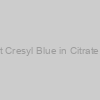 Brilliant Cresyl Blue in Citrate Saline |
|
RRSP14-B |
Atom Scientific |
100ml |
EUR 14.76 |
|
|
 Brilliant Cresyl Blue in Citrate Saline |
|
RRSP14-C |
Atom Scientific |
250ml |
EUR 19.31 |
|
|
 Brilliant Cresyl Blue in Citrate Saline |
|
RRSP14-D |
Atom Scientific |
500ml |
EUR 19.31 |
|
|
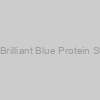 5X Coomassie Brilliant Blue Protein Staining Solution |
|
abx460032-1096tests |
Abbexa |
10 × 96 tests |
Ask for price |
 5X Coomassie Brilliant Blue Protein Staining Solution |
|
abx460032-596tests |
Abbexa |
5 × 96 tests |
Ask for price |
 5X Coomassie Brilliant Blue Protein Staining Solution |
|
abx460032-96tests |
Abbexa |
96 tests |
EUR 525 |
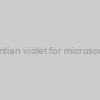 Gentian violet for microscopy |
|
GRM6354-100G |
EWC Diagnostics |
1 unit |
EUR 12.6 |
|
Description: Gentian violet for microscopy |
 Gentian violet for microscopy |
|
GRM6354-1KG |
EWC Diagnostics |
1 unit |
EUR 72.01 |
|
Description: Gentian violet for microscopy |
 Gentian violet for microscopy |
|
GRM6354-25G |
EWC Diagnostics |
1 unit |
EUR 6.93 |
|
Description: Gentian violet for microscopy |
) Lugols Iodine Solution (for Microscopy) |
|
RRSP84-D |
Atom Scientific |
500ml |
EUR 7.33 |
) Lugols Iodine Solution (for Microscopy) |
|
RRSP84-E |
Atom Scientific |
1L |
EUR 11.32 |
) Lugols Iodine Solution (for Microscopy) |
|
RRSP84-F |
Atom Scientific |
2.5L |
EUR 19.31 |
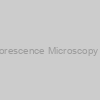 Fluorescence Microscopy Aid |
|
4400 |
Virostat |
3 ml |
EUR 216.6 |
|
Description: This is Counter - Stain/Blocking Diluent with optimal formula for preparaiton of final dilutions of FITC conjugate prior to use in FA procedures. |
 Brilliant Green |
|
21770007-1 |
Glycomatrix |
100 mL |
EUR 69.54 |
 Brilliant Green |
|
21770007-2 |
Glycomatrix |
500 mL |
EUR 107.06 |
 Brilliant green |
|
BB0242 |
Bio Basic |
25g |
EUR 67.31 |
|
|
 Brilliant Black BN |
|
T18928-10mg |
TargetMol Chemicals |
10mg |
Ask for price |
|
|
|
Description: Brilliant Black BN |
 Brilliant Black BN |
|
T18928-1g |
TargetMol Chemicals |
1g |
Ask for price |
|
|
|
Description: Brilliant Black BN |
 Brilliant Black BN |
|
T18928-1mg |
TargetMol Chemicals |
1mg |
Ask for price |
|
|
|
Description: Brilliant Black BN |
 Brilliant Black BN |
|
T18928-50mg |
TargetMol Chemicals |
50mg |
Ask for price |
|
|
|
Description: Brilliant Black BN |
 Brilliant Black BN |
|
T18928-5mg |
TargetMol Chemicals |
5mg |
Ask for price |
|
|
|
Description: Brilliant Black BN |
 Brilliant black BN |
|
RM3868-25G |
EWC Diagnostics |
1 unit |
EUR 77.82 |
|
Description: Brilliant black BN |
 Brilliant sulfaflavine |
|
T20230-10mg |
TargetMol Chemicals |
10mg |
Ask for price |
|
|
|
Description: Brilliant sulfaflavine |
 Brilliant sulfaflavine |
|
T20230-1g |
TargetMol Chemicals |
1g |
Ask for price |
|
|
|
Description: Brilliant sulfaflavine |
 Brilliant sulfaflavine |
|
T20230-1mg |
TargetMol Chemicals |
1mg |
Ask for price |
|
|
|
Description: Brilliant sulfaflavine |
 Brilliant sulfaflavine |
|
T20230-50mg |
TargetMol Chemicals |
50mg |
Ask for price |
|
|
|
Description: Brilliant sulfaflavine |
Les échantillons d’ADN sans cellules peuvent fournir des perceptions significatives en oncologie, par exemple l’hétérogénéité tumorale, le développement tumoral instantané, la réponse à la thérapie et au traitement, comprenant l’immunothérapie et les mécanismes de métastases cancéreuses. Une croissance maligne à n’importe quelle phase peut dépasser les cellules tumorales en plus des fragments de néoplasticité provoquant l’ADN dans le système circulatoire, donnant un signe noble de mutation dans la tumeur au moment de l’échantillonnage.


